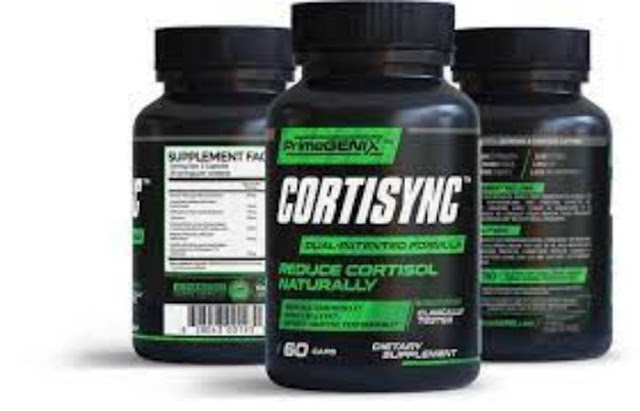
Cortisol is a hormone that plays a crucial role in the
body's stress response and regulation of various physiological processes. While
cortisol is essential for our overall well-being, excessive or prolonged
elevation of cortisol levels can have detrimental effects on our health. As a
result, many people are interested in natural cortisol blockers that can help
regulate cortisol production and promote a healthy balance. In this article, we
will explore everything you need to know about natural cortisol blockers,
including their effectiveness, mechanisms of action, and potential side
effects.
What is cortisol?
Cortisol, often referred to in place of the "strain
hormone," is produced by the adrenal glands and is involved in various
bodily functions. It helps regulate blood sugar levels, control inflammation,
support the immune system, and aid in the metabolism of proteins,
carbohydrates, and fats. Cortisol levels naturally fluctuate throughout the
day, with the peak levels occurring in the morning and the lowest levels in the
evening.
Why do we need cortisol blockers?
While cortisol is essential for our survival and normal
bodily functions, chronic stress, poor lifestyle habits, and certain medical
conditions can lead to excessive cortisol production. Prolonged elevation of
cortisol levels can subsidize to a range of health topics, including weight
gain, increased abdominal fat, impaired immune function, high blood pressure,
elevated blood sugar levels, reduced bone density, and cognitive problems.
Therefore, finding ways to regulate cortisol levels is of great interest to
many individuals.
Natural cortisol blockers:
a. Adaptogenic herbs: Adaptogens are a class of herbs that
help the body adapt to stress. They work by modulating the stress response and
promoting a state of balance, known as homeostasis. Popular adaptogenic herbs
that may help regulate cortisol levels include ashwagandha, rhodiola rosea,
holy basil, and ginseng. These herbs have been used in outmoded medicine for
centuries and have shown promising results in reducing stress and cortisol
levels in some studies.
b. Omega-3 fatty acids: Omega-3 fatty acids, found in fatty
fish, walnuts, flaxseeds, and chia seeds, have anti-inflammatory properties and
may help reduce cortisol levels. Research suggests that omega-3 supplementation
may decrease cortisol release in response to stress, thereby promoting a
healthier stress response.
c. Magnesium: Magnesium is an essential mineral involved in
numerous physiological processes, including the regulation of cortisol.
Adequate magnesium levels have been associated with lower cortisol production,
while magnesium deficiency may contribute to elevated cortisol levels.
Consuming magnesium-rich foods like dark leafy greens, nuts, seeds, and whole
grains, or using magnesium supplements, may help support healthy cortisol levels.
d. Vitamin C: Vitamin C is a powerful antioxidant that
supports the immune system and helps the body cope with stress. Research
suggests that vitamin C supplementation may help reduce cortisol levels and
mitigate the negative effects of stress. Citrus fruits, berries, peppers, and
leafy greens are excellent sources of vitamin C.
e. Sleep and relaxation techniques: Adequate sleep and
relaxation are crucial for maintaining balanced cortisol levels. Chronic sleep
deprivation and high-stress levels can lead to elevated cortisol production.
Implementing good sleep hygiene practices, such as sticking to a unvarying
sleep schedule and creating a peaceful sleep environment, can help regulate
cortisol. Additionally, relaxation techniques like deep breathing, meditation,
yoga, and mindfulness practices have been shown to reduce cortisol levels and
promote a sense of calm.
Effectiveness and considerations:
While natural cortisol blockers show promise in regulating cortisol levels, it is essential to note that individual responses may vary. What works for one person may not have the same effect on another. Moreover, scientific research on the effectiveness of natural cortisol blockers is still limited, and more rigorous studies are needed to establish their efficacy.
It's also important to consider that managing cortisol
levels involves a holistic approach. Lifestyle factors such as a balanced diet,
regular exercise, stress management, and sufficient sleep play crucial roles in
maintaining healthy cortisol levels. Natural cortisol blockers can be a
complementary addition to these lifestyle changes, but they should not be seen
as standalone solutions.
Potential side effects:
Most natural cortisol blockers, such as adaptogenic herbs
and nutrients, are generally considered safe when used as directed. However,
it's important to be mindful of potential interactions with medications or
underlying health conditions. If you have any pre-existing health conditions or
are taking medications, it's recommended to consult with a healthcare
professional before incorporating natural cortisol blockers into your routine.
In conclusion, natural cortisol blockers offer a potential
way to regulate cortisol levels and promote a healthier stress response.
Adaptogenic herbs, omega-3 fatty acids, magnesium, vitamin C, sleep hygiene,
and relaxation techniques are among the strategies that may help support
balanced cortisol levels. However, it's important to remember that managing
cortisol levels requires a comprehensive approach that includes healthy
lifestyle habits. Consulting with a healthcare professional is advisable to
ensure personalized advice and address any specific concerns.



